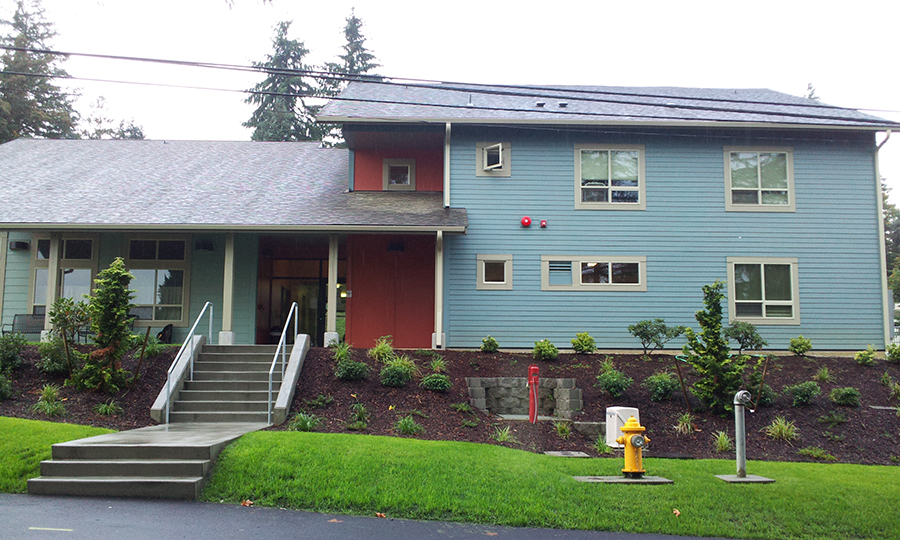Consolidated Plan, Annual Action Plan, and the Performance and Evaluation report (PER) are designed to help states assess their affordable housing and community development needs, identity priorities and report outcomes from the CPD formula block grant programs in Washington State:
- Community Development Block Grant (CDBG) Program
- HOME Investment Partnerships (HOME) Program
- Housing Trust Fund (HTF)
- Emergency Solutions Grants (ESG) Program
- Housing Opportunities for Persons with AIDS (HOPWA) Program
Development of Washington’s Consolidated Plan Underway
Public hearing set for Dec. 17
Commerce is soliciting feedback from the public on the 2025-2029 Consolidation Plan that will guide distribution of millions of federal housing resources over the next four years. The state’s Consolidated Plan benefits low-income households and locations, identifies housing and community development needs, and sets the priorities and strategies to meet those needs.
The first set two public hearing will take place Dec. 17 and provide an opportunity to inform development of this plan, including goals and priorities. The second public hearing will be spring 2025 and will serve as an opportunity to review the draft plan.
For more information, review Washington’s 2020-2024 Consolidated Plan (PDF)
How to participate
Commerce will host virtual and in-person public comment opportunities on Dec. 17. No registration is required. Accessibility accommodations are available upon advanced request.
In-person
Tuesday, Dec. 17, 2024, 12 – 1 P.M
Commerce Olympia Office, Bldg. 5
1011 Plum St. SE, Columbia Room #110
Olympia, WA 98504
Virtual
Tuesday, Dec. 17, 2024, 6 :30 – 7 :30 P.M
Join meeting (link open the meeting in Microsoft Teams)
or
Submit a comment via email at the contact below
Questions
Contact Riley Sweeney at riley.sweeney@commerce.wa.gov
Plans and reports
Every spring an annual Action Plan is developed to describe how the state will use that year’s annual allocation of HUD formula funds to meet affordable housing and community development needs. Action Plans are annual updates to the five-year Consolidated Plan. The Action Plan is amended when the state is allocated additional HUD funds or other substantial changes are necessary. The Action Plans follow HUD’s plan template.
- 2023 Amended Action Plan (PDF)
- 2022 Action Plan (PDF)
- 2021 Action Plan (PDF)
- 2019 Action Plan Amendment for CARES Act CDBG-CV, ESG-CV, and HOPWA-CV Funds (PDF)
- CARES Act CDBG-CV Overview (PDF)
- CARES Act ESG-CV Overview (PDF)
- CARES Act HOPWA-CV Overview (PDF)
- 2019 Action Plan (PDF)
- 2018 Action Plan (PDF)
- 2017 Action Plan (PDF)
- 2016 Amended Action Plan (PDF)
The Consolidated Plan is a five-year planning document required by the U.S. Department of Housing and Urban Development (HUD) to be submitted by all jurisdictions that directly receive HUD formula funds. The Washington State Consolidated Plan and annual Action Plans determine priorities, establish strategic goals, and allocate resources for HUD funds administered by Commerce: the state Community Development Block Grant (CDBG), Emergency Solutions Grants (ESG), HOME Investment Partnership (HOME), Housing Opportunities for Persons with AIDS (HOPWA), and National Housing Trust Fund programs. Commerce is the lead agency responsible for developing and implementing the Washington State Consolidated Plan, which follows HUD’s template.
In accordance with 24 CFR 42, the residential anti-displacement and relocation assistance Plan (PDF) identifies the steps that Commerce will take to minimize the displacement of persons from their homes, to provide relocation assistance for lower-income tenants and to replace lower-income dwellings, demolished or converted to a use other than lower-income housing in connection with projects assisted with funds provided under the CDBG and/or HOME Program(s).
Every fall Commerce submits an annual Performance Evaluation Report on the U.S. Department of Housing and Urban Development (HUD) funds it administers. Following HUD’s reporting template, the Performance Evaluation Report describes the programs’ activities and accomplishments during the state’s July – June program year.
The analysis of impediments to fair housing choice (PDF) examines a variety of sources related to furthering fair housing, the fair housing delivery system and housing transactions that affect people who are protected under fair housing law.

